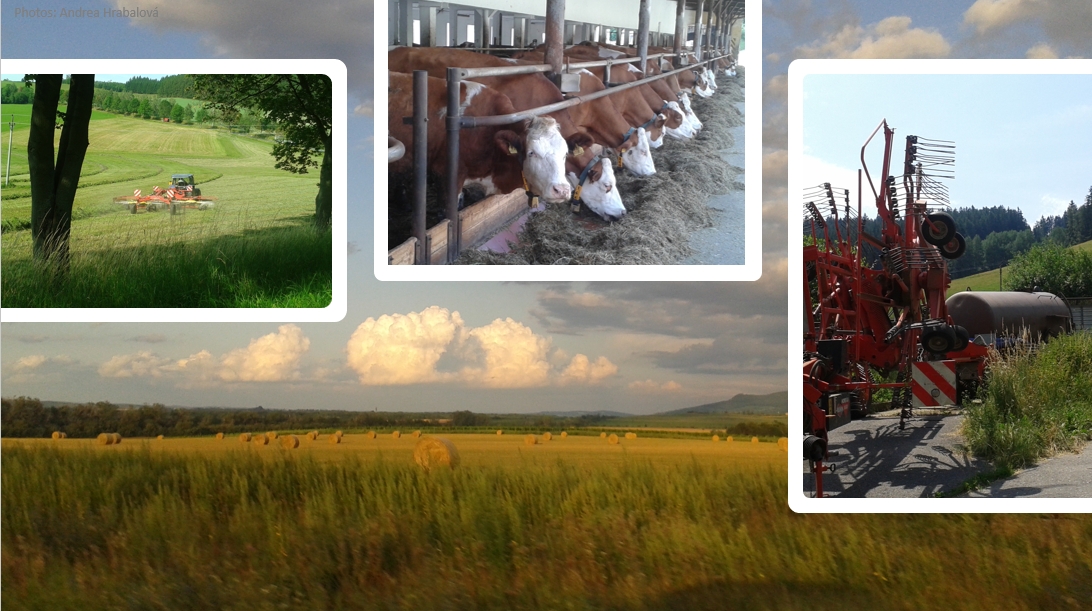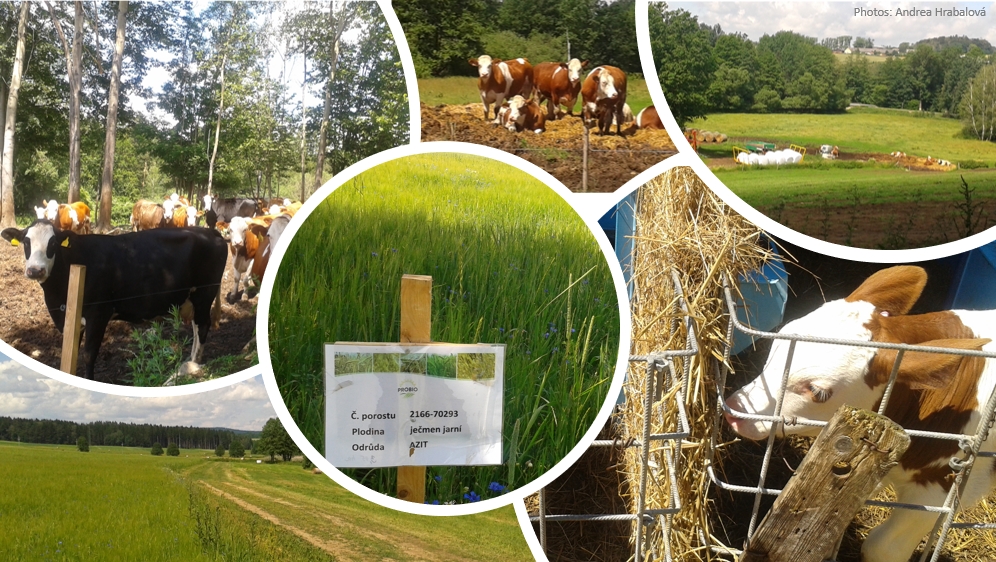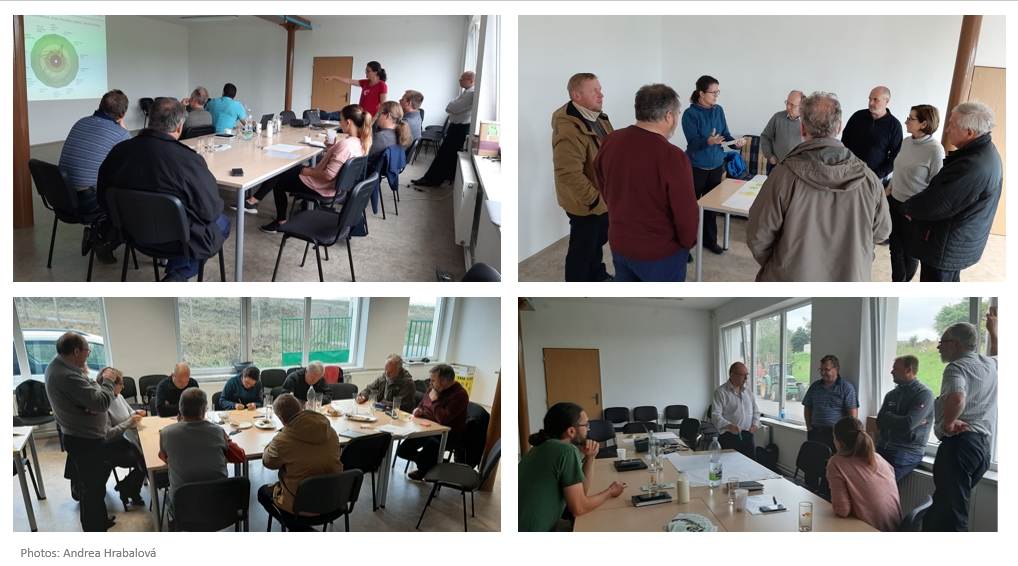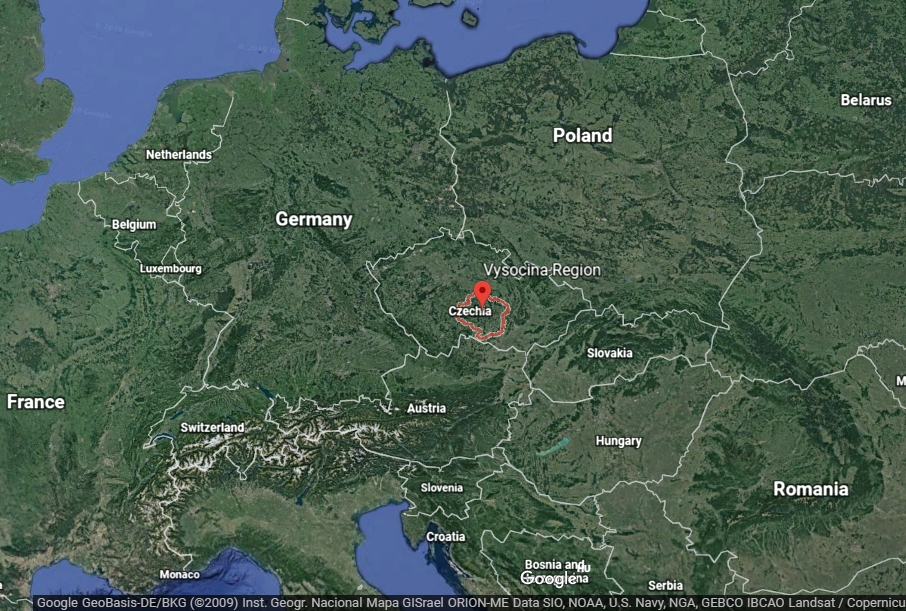CASE STUDY DILEMMA AND RESEARCH QUESTION
The Czech case study aims to maintain the viability of dairy farms applying organic farming as an agro-ecological farming system (AEFS) and thereby maintain their good practices on arable land which includes the elimination of pesticides and the replacement of mineral fertilizers with farmyard ones, with a positive impact on water quality and improved soil fertility. The consequent motive is the effort to extend organic farming (OF) in the protection zones of water resources.
The case study dilemma is how to maintain good performance of arable land management in organic dairy farms in the Vysočina region to reduce arable soil degradation and water pollution by pesticides while ensuring their economic viability?
Research questions:
- How to motivate organic farmers to maintain organic / agro-ecological farming system?
- What are the factors that hinder and support the maintenance and further expansion of agro-ecological practices?
- How can these barriers and drivers of the transition towards sustainable AEFS be addressed in the specific case study context?
- How to improve the long-term sustainability of organic dairy farms?
- What market and policy setting is needed in order to foster organic farming (AEFS)?
- What other activities (at local and national level) / innovations are needed to maintain proper care of arable land through organic dairy farms?

KEY CHARACTERISTICS AND SUSTAINABILITY ISSUES OF THE FARMING SYSTEM
The background for the case study in the Czech Republic stems from an effort to support the development of organic dairy farms with all their benefits for water and soil, as their number has stagnated in the long term. Since 2012, the number of dairy cows in OF has stagnated around 7000 heads (less than 2 % of all dairy cows) and organic milk production represents only about 1% of the total milk production in the Czech Republic. While milk is one of the main commodities purchased as organic, a significant proportion of organic dairy products is imported.
The geographic area of the case study is Vysočina (NUTS 3). With an area of almost 6,800 km2, it is the fifth largest region in the Czech Republic. It is a traditional agricultural region: 60% of its area is covered by agricultural land, of which 77% is arable land. Although natural conditions are below average (altitude and sloping terrain reduce production capacity), for some agricultural commodities and activities the Vysočina region is optimal (potato, oilseed, cattle and milk production).
Vysočina was selected as the main area of milk production in the Czech Republic (production about 570 million liters represents almost one fifth of the nationwide production). Similarly, the region is also the largest producer of organic milk (production of 9 million liters represents almost 30 % of total organic production). There are about 450 dairy farms in the region, of which 14 farms in OF (on a national scale it is 2,866 dairy farms, of which 141 are organic farms).
In addition, the only sales cooperative for organic milk “Czech Organic Milk” was established in this region, when in 2012 the first 9 organic farms were merged. Gradually, new members have joined and today the cooperative has about 30 farms and brings together 45% of domestic organic milk production (approx. 14 million liters). Despite the merge of production, it is very difficult for the cooperative to ensure sales at fair prices. Since the end of its organic milk exports to Germany in 2018, the cooperative has been forced to sell some of its milk for conventional processing without a price premium. This is due to: consumers´ low demand for organic food, the surplus of raw organic milk on the domestic market and the authorities´ inability to restrict supermarkets in their import of organic dairy products from abroad.
An additional reason for the selection of Vysočina is the specificity of the region - there are important water areas and water resources. Conventional farms operating in protective zones of water resources have to comply with more sustainable farming methods (stricter limits on pesticide and fertilization use). Although OF is an ideal farming alternative in these areas, it has not yet been possible to motivate farmers for conversion.

KEY ACTORS INVOLVED
Actors identified to be of relevance to the case study include
- dairy farmers in organic farming and in distinct stages of the agro-ecological transition pathway;
- farmers´ associations: Agrarian Chamber as the main representative of conventional farmers and PRO-BIO Association as the only association for organic farmers
- sales representatives: cooperative Czech Organic Milk (case study champion), other sales organisations, local dairies and dairies certified for organic milk processing
- authorities and administration: Ministry of Agriculture (CAP department and OF department), Ministry of Environment, water authorities (municipalities) and river basin administrators (state institutions), regional authority of Vysočina
- NGO and local community: ZERA Agri-Environmental Regional Agency, Birdlife Czech, other local actors invited to participate in solving the dilemma
- science and advisory: accredited advisors for agriculture, ÚZEI and other research institutions focused on soil and water, input suppliers (Biocont Laboratory…)
- consumers: raising awareness of the project dilemma (engagement of PRO-BIO League)
AGRO-ECOLOGICAL PRACTICES AND SUSTAINABILITY TRADE-OFFS
The transition to organic farming means a significant change in land use. The area of cash crops (like wheat) is declining to 25 - 30 % and the main share of arable land is occupied by crops improving soil fertility and crops for fodder purposes (temporary grass, clover, legume-cereal mixtures). The area of legumes is more than doubled, intermediate crops and undersowing are more often used. At the same time, farmers do not use inorganic nutrients and pesticides.
As a result, organic dairy farms contribute significantly more to enhance biodiversity. They also have a more favourable effect on water, soil and air quality compared to conventional farms. Economic performance is comparable to conventional farms, but organic farms are more dependent on obtaining a price premium as well as subsidies.
The low share of cash crops reduces the productivity of arable land and increases the dependence of organic farms on animal production, namely the sale of organic milk (accounting for up to 90 % of farm income) and thus their economic vulnerability.

KEY BARRIERS OF IMPLEMENTATION AGRO-ECOLOGICAL PRACTICES
- Market limitations faced by farmers in commercializing organic products (uncertainty of long-term sales and obtaining a price premium);
- Limited knowledge / experience and openness to alternative practices (AEFS) among farmers; lack of specific agro-ecological advisory services;
- Lack of work-force (workers on small/medium-sized farms, experienced and convinced employees on large farms);
- Need for investments (technologies for land operations, animal housing, post-harvest treatment, processing);
- More complex logistics (longer distances to organic milk processors, smaller volumes)
- Land ownership (most of the land is rented - complicated land use change, growing competition for land, limited possibility to expand)
- Lack of incentives (market, social and political) motivating farms to proceed towards more environmentally friendly / sustainable forms of farming
KEY ACTIONS AND STRATEGIES TO OVERCOME BARRIERS
Organic dairy farms agreed creating a sales cooperative to increase chance to get price premium for organic milk. The cooperative already operates for several years and common sale is carried out, but the economic uncertainty remains.
Actions proposed by stakeholders to overcome the identified barriers focus on bridging knowledge gaps (e.g. sharing experience, hiring advisor for group learning), inviting other actors to cooperation (e.g. processors, traders), and keeping added value (e.g. for some farms the processing could be a solution). All these actions rely a lot on increase of cooperation between farmers as most of them could be prohibitively difficult/costly to arrange individually.
Support for advice and green public procurement, together with organic farming support measure, are instruments selected by stakeholders as most promoting the proposed actions implementation.

KEY LESSONS LEARNT
- Greater transfer of knowledge and experiences is needed. Farmers are the direct decision-maker on the adoption of agro-ecological practices, information and subject-specific advice of how to manage better environmentally and also economically are necessary!
- Involvement of actors in the whole food system is needed, stimulated by specific incentives. Non-agricultural actors play very important role in the development of sustainable agriculture (e.g. certification, awareness campaigns, green public procurement, price policy for agri-ecological food).
- Investing efforts in cooperation and capacity building is needed to facilitate necessary changes. Supporting local topic-specific initiatives / brokers is important to initiating activities and implementing change.
References
Akční plán ČR pro rozvoj ekologického zemědělství v letech 2016–2020
Download
- UNISECO H2020 policy brief: Improving soil properties on arable land by maintaining organic dairy farming in the Vysočina region
- UNISECO H2020 policy brief: Zlepšení půdních vlastností orné půdy udržením ekologického hospodaření mléčných farem na Vysočině
- UNISECO H2020 issue brief: Enhancing cooperation and capacity building to maintain arable land protection on organic dairy farms in the Czech Republic
- UNISECO H2020 issue brief: Posílení spolupráce a budování kapacit k zachování ochrany orné půdy na ekologických mléčných farmách v České republice
- Presentation: UNISECO Porozumění a Zlepšení Udržitelnosti Agro-Ekologických Zemědělských Systémů v EU (in CZ)
- Presentation: Summary and conclusions of the case study (in CZ)
- Description: Organic milk market (in CZ)
- Description: Share of Organic Farming in Vysocina (in CZ)
- Description: Soil and water status (in CZ)
- Article: UNISECO - porozumění a zlepšení udržitelnosti agroekologických zemědělských systémů v EU (in CZ)
- Article: How to produce successfully organic milk? (in CZ)
- Project flyer (in CZ)
Related newsitems:
https://uniseco-project.eu/news/128/how-organic-milk-producers-are-doing-in-the-czech-republic
Dairy farms in Vysočina region
